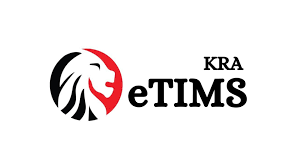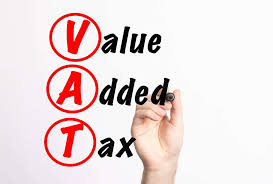It is an open secret that a penny saved is a penny earned. Taxes are a necessity; you don’t want to spend any more than you have to on taxes. The key to balanced living is to carry out a budgeting process and come up with a spending plan; the same goes for minimizing your tax bill.
Tax planning explained
Tax planning is the process of understanding how specific tax items relate to your organisation throughout the year, after which you determine how to act on those items in the most tax-efficient manner. The goal of tax planning is to decrease the overall amount of money you pay in taxes to the KRA. The process helps reduce cash outflow and keeps more money in the business coffers.
What to consider
Tax planning is the analysis of a financial situation or plan from a tax perspective. The purpose of tax planning is to ensure tax efficiency. Tax planning activities may include arranging one’s financial affairs to minimize tax liability, determining the proper treatment of a transaction for tax purposes, and evaluating any available tax credits or incentives.
It’s a taxpayer’s right
If you’re a self-employed small business owner, you deserve a tax plan designed to work for you. As a small business owner, there are many things that you do in your personal life that can be written off as business expenses, but how do you know if they qualify? Tax planning is a great way to ensure that your dollars go further.
Types of tax planning
Strategic tax planning
Strategic tax planning is the process of creating and implementing a coordinated plan to minimize taxes owed. It is typically aimed at multinational corporations, estate and wealth planning, and individuals whose income places them in different tax brackets. Strategic tax planning focuses on reducing your overall tax liability while minimizing your risk of an audit. By minimizing your taxable income, you reduce your overall tax burden. Taking out a home equity loan to pay off consumer debt is an example of strategic tax planning. The interest on the home equity loan is tax-deductible, but interest from consumer debt is not. For a comprehensive and effective structure, it must consist of a well-designed business plan that can serve as a road map for future decisions, a well-designed set of estate documents, and a thoughtful yet sufficiently flexible overall financial strategy.
Defensive tax planning
The idea of defensive tax planning is to take advantage of legal techniques to reduce the amount of taxes payable and/or defer paying taxes. Defensive tax strategies can be used in both personal and business taxation. In practice, this means maintaining or decreasing the client’s average tax rate. Conservative financial planning applies defensive strategies based on existing laws. Defensive tax planning is the general category for a number of strategies designed to make use of current tax codes, reduce your overall tax rates, and maximize your total tax returns. It’s called defensive because its primary purpose is to help you protect your overall wealth from the effects of taxation.
Offensive tax planning
Offensive tax planning is the process of deliberately designing business strategies to reduce the level of taxable income while remaining within the limits of the law. It is distinct from defensive tax planning, which involves simply complying with the law in the most efficient manner possible. In short, offensive tax planning seeks out ways to legally reduce income tax paid, while defensive tax planning only seeks to minimize or avoid penalties for non-compliance with taxation laws. Generally, this type of tax planning is making deliberate use of the ambiguities or loopholes in a tax system to avoid paying the full amount of tax that may be otherwise due.
Benefits of tax planning
- Tax planning enables you to understand how taxes can impact your business. By understanding the impact, you will be able to make better decisions about managing your company’s assets, expenses, and income in a way that will minimize the amount of taxes owed. You may also have a better idea of what investments are sound and which ones aren’t worth their weight in gold.
- You can find out if there are any loopholes or deductions that may be available for certain types of businesses. These could potentially save thousands each year on taxes! In addition, knowing what kind of tax credits might apply to specific purchases helps with budgeting as well so that when those items become available, they won’t come off as surprises.
- Tax planning helps individuals stay on top of their finances by allowing them to plan ahead for the future. This means that you can start saving money now so that later down the road, when retirement rolls around or, another big expense looms large over your head like college tuition costs; there will be plenty saved up to cover these things comfortably without feeling stressed out about every penny spent each month!
- It allows people who are self-employed or have multiple streams of income from various sources such as investments (shares), real estate investments, and other forms of business ownership opportunities like franchises, etc., all at different levels within their tax brackets, which may impact how much they pay annually.
- It gives people an idea of what kind of tax deductions they can take advantage of when filing for the year. For example, if someone has a mortgage plan for a residential home which they currently reside at, then there may be certain expenses related to the mortgage plan (i.e., interest payments) which qualify as deductions from taxable income and therefore reduce your overall bill. However, one should always consult a professional before claiming anything because every situation varies greatly depending on many factors such as how much each child costs per month versus what it would cost without having any kids at all due to extracurricular activities etc.
Methods of tax planning for individuals
There are many methods of tax planning, each with their own advantages and disadvantages.
FHC Recommends the use of the method that best suits your individual circumstances. Talk to an FHC representative today to find out more.
The most common methods of tax planning are:
-deductible expenses
-investment income splitting
-capital gains deduction
Each method has its own advantages and disadvantages, which should be considered when deciding on a plan. For example, deductible expenses can help reduce your taxable income, but they must be claimed correctly in order to get the full benefit.
Investment income splitting allows you to split investment income with your spouse, which can reduce the overall tax payable. However, not all types of investment income are eligible for splitting. This can be helpful if you have sold investments at a profit in the past year.
Methods of tax planning for businesses
There are a few different methods of tax planning that businesses can use in order to minimize their taxes. These include:
– Business Expense Deductions: This method allows businesses to deduct certain expenses from their taxable income. This can be helpful in reducing the amount of taxes that they owe, but it can also be complicated to track all of the eligible deductions.
– Tax Credits: Tax credits are available for businesses that meet certain criteria, such as investing in renewable energy or hiring veterans. These credits can reduce the amount of taxes that a business owes, and they are usually easier to claim than deductions.
– Deferring Income: This method allows businesses to delay paying taxes on their profits until a later date. This can be helpful if your business is expecting lower profits in the current year, as it will allow you to spread out your tax payments over time.
– Investing in Assets: When a business invests in assets such as property or equipment, they can often deduct the cost of those assets from their taxable income. This can be helpful in reducing the amount of taxes that a business owes.
Conclusion
Each method has its own advantages and disadvantages, so it is important to understand what each one entails before making a decision. FHC recommends deferring income as the best method for most businesses, as it allows you to delay paying taxes on your profits until a later date. This can be helpful if your business is expecting lower profits in the current year. However, if you expect higher profits in the future, investing in assets may be a better option. Speak with an accountant or financial planner to determine which method is best for your business.
Final word
At FHC, we help you take out the headache on tax matters. We have a team of experienced professionals ready to support you; talk to us today.














